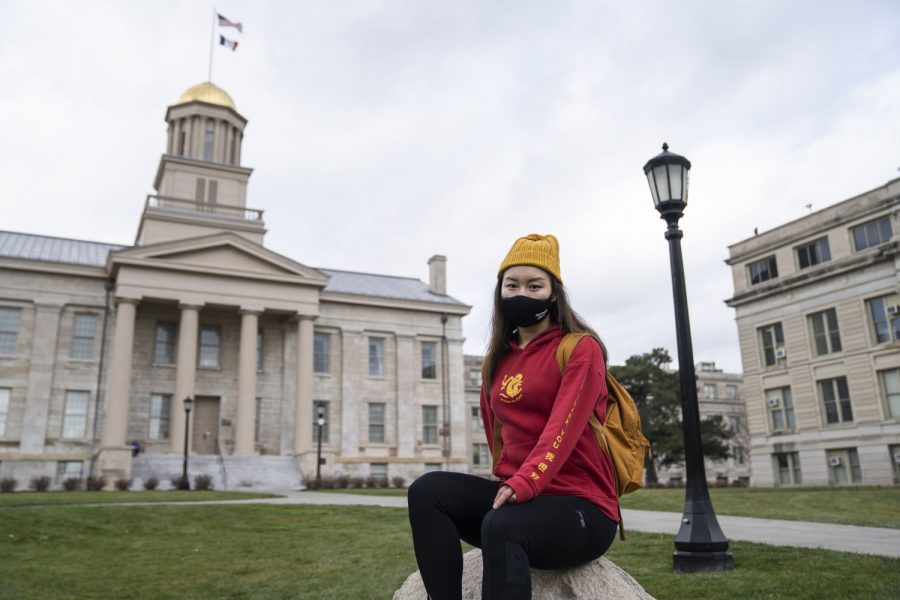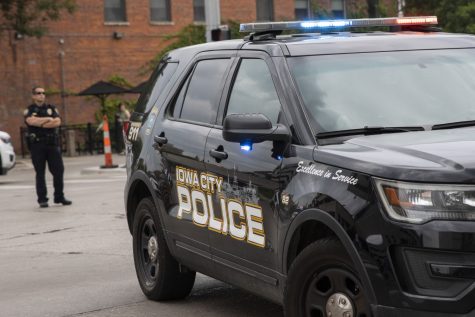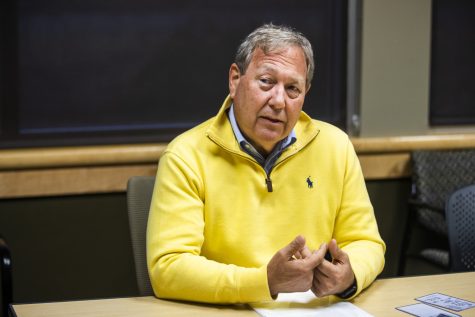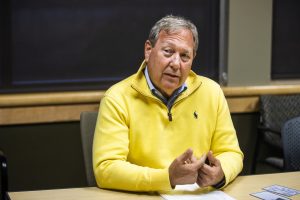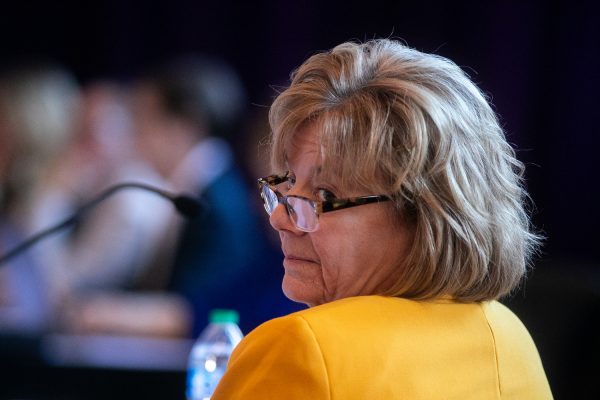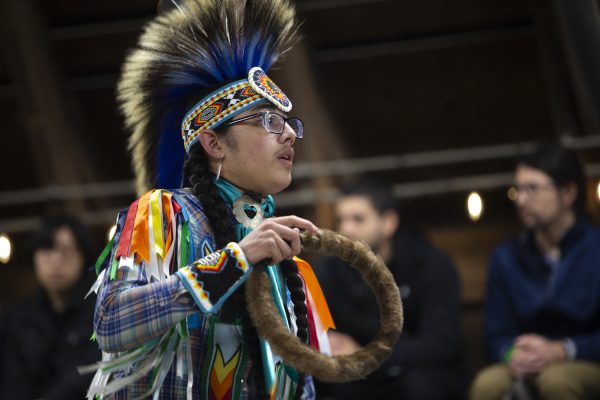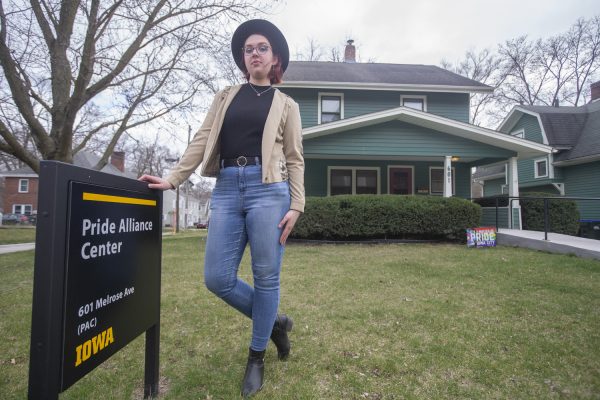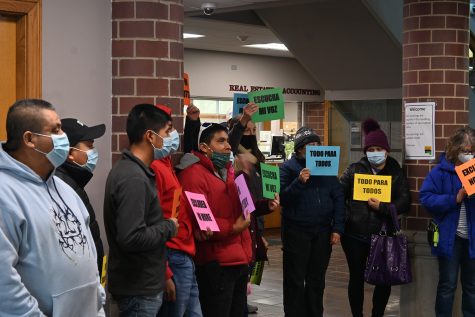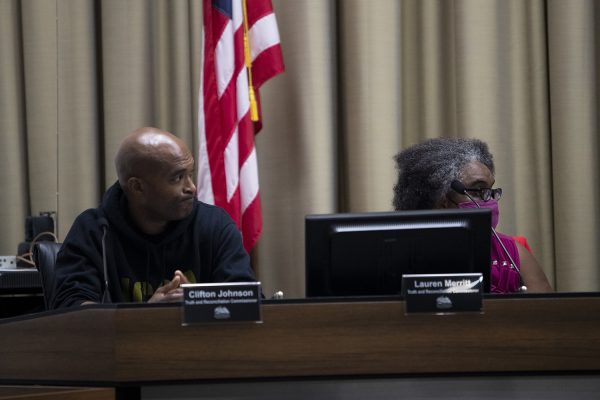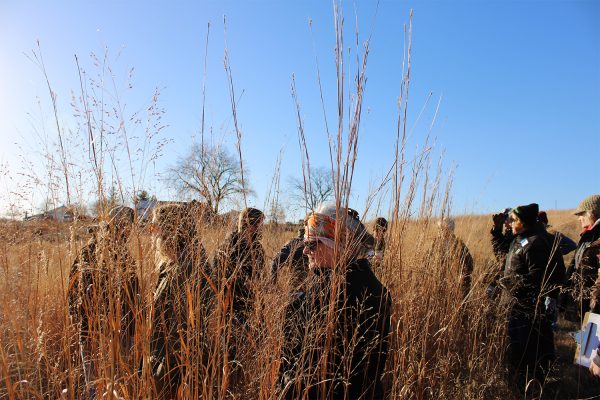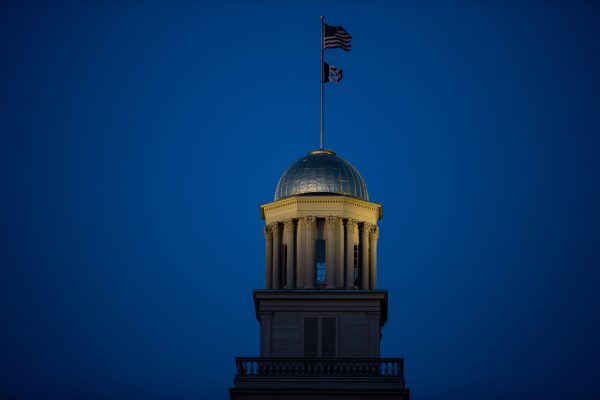‘Time to Heal,’ immigrants, international students, and community advocates react to a high stakes election
Members and advocates of the international and immigrant community of Iowa City react to a Biden-Harris victory.
UI international student Peiqi Chen poses for a portrait at the Pentacrest on Monday, Nov. 09, 2020. Chen is originally from the Hunan province of China and had hoped for the defeat of President Trump in the 2020 elections.
November 15, 2020
For some immigrants and international students in Iowa City, the 2020 election — which many had no say in — meant the difference between another four years of anxiety or security.
University of Iowa senior Amani Ali, a member of the African Student Association, said she voted for the Joe Biden-Kamala Harris ticket. Ali, who received citizenship about seven years ago, was raised in the U.S. after coming as a refugee from Sudan.
This was a high-stakes election for immigrants and people of color, Ali said, and the election was an emotional time for her and her immigrant friends and family.
“I remember four years ago, back in 2016 when Trump got elected,” Ali said. “I was literally worried for the sake of my family.”
Ali said, even though her family had received citizenship, the language Trump used made them fear they were no longer welcomed in the U.S.
This election was “a big life changer,” Ali said.
“I know 2020 has been a rough year for all of us with COVID-19 and everything,” Ali said. “But finally, I feel like a little bit of weight has been lifted off my shoulders, and I don’t have to worry about my immigrant friends and my family members.”
UI senior Peiqi Chen, who is from China, said the results of this election mean she’ll stay in the U.S. for graduate school. She’d applied for universities in Australia as a plan B, because she didn’t know what another four years of the Trump administration would mean for international students in the U.S.
Chen said it didn’t matter as much who won, just that Trump lost — because of his threatening language toward international community members and implementation of tight international student regulations, such as restrictions on student visas if classes went all online that was since rescinded.
“Especially when he said, ‘Chinese Virus’ for COVID-19,” Chen said. “It’s kind of aggressive to me. I feel a lot of offense.”
Not having a way to have her voice heard was anxiety inducing, Chen said.
“I think the most frustrating thing to international students – not only me, but also my friends – is we don’t have a way to speak up,” Chen said.
Although Chen is satisfied with the election results, she said international students struggle with ongoing visa requirements.
Dean of International Programs Russell Ganim, said the volume of proclamations and policy changes issues from the White House and Department of Homeland Security over the last few years have for the most part not been favorable toward international students and scholars.
Under the umbrella of the COVID-19 pandemic, the administration has proposed and issued orders limiting the international student’s visa statuses, duration of stay, and mobility.
“This has to take a toll psychologically, not simply because of the content of these authorizations, but the volume of them, and just the number of them and the rapidity or the frequency at which they were implemented,” Ganim said. “That has to be very very difficult to sustain from a psychological standpoint.”
With the new administration, Ganim said he anticipates a change in this trend and his inclination is that the climate toward international students in the U.S. will trend in a more positive direction.
“I think that a new administration could set a reassuring tone with respect to international education and the welcoming of international students and scholars to the United States,” Ganim said.
In 2016 directly following President Trump’s victory, international students at the UI were contacting campus resources and inquiring about the security of their visa statuses and safety in the U.S. However, since the election on Nov. 2, Ganim said their offices had not received any queries with regard to the outcome of the 2020 election and President-elect Biden’s win.
“I’m taking that actually as a good sign,” Ganim said. “Because I think it either means that students feel secure, or that they feel at least that they have enough knowledge moving forward to not be inordinately concerned about their status.”
Just before Biden was declared president-elect on Nov. 7, the Iowa City Catholic Worker House held a prayer vigil for a peaceful transition of power for about 20 people.
The vigil was organized by Manny Galvez, an Iowa City community advocate for the Latinx population and immigrant community in the Iowa City area. Galvez said the event was to promote faith and values of fairness and equality.
RELATED: University of Iowa students discuss how the high stakes election impacts them
“It is really important right now in this country that we send a message that love is stronger than hate, and unity is stronger and better for society than the division,” Galvez said.
Galvez said many people have watched in fear over the last four years, because the nation’s leader has sent messages of division.
“Now, it’s time to heal,” Galvez said.
Vice President of LULAC 308 David De La Torre, leader of a local sector of the nonpartisan Latinx civil-rights organization, said there was a lot of anxiety in the air prior to the presidential race being called.
“There’s so much at stake for the immigrant community, who are among the most vulnerable members of the community – including their families,” De La Torre said.
De La Torre said immigrants already face inequities and hostilities that have been heightened by the coronavirus and recent derecho in Iowa.
Another trend De La Torre said he noticed while canvassing in the field, other than anxiety, was hope. He saw a lot of energy and momentum throughout his civic engagement work in the community.
“One quote that I heard from that experience was someone said, ‘que voten los que pueden, para los que no pueden,” De La Torre said. “So, for those who can vote, vote –– vote for those who cannot vote. Because not everybody can.”



